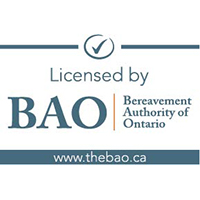
Why would someone need a Funeral Celebrant? Let me begin with this:
“Not religious? I know a minister down the road who will tone down the religion for you!” Many funeral directors over the years have responded like this when a family comes to them saying that they don’t want a traditional funeral. The numbers of those who don’t identify with any particular faith tradition continue to rise. So more and more people are not seeing value in participating in these types of rituals that don’t fit them or who their loved one was.
Of course there are some of these “rent-a-ministers” who do a great job of meeting with the family prior to the ceremony. But the reality is that most have not been trained to create completely personalized, storytelling ceremonies.
Please hear me, I’m not at all “anti-minister”. In fact, I was raised by a fantastic one! But when I became a Funeral Celebrant, my Dad said, “I’m really proud of you honey, and I think it’s great that you’re doing this. But if you can’t talk about God, what do you say?”
I’d like to believe (though not likely!) that I answered him with what I learned in my training with Insight Institute.
“A Celebrant is a person who seeks to meet the needs of families during their time of loss. They serve by providing a funeral service that is personalized to reflect the personality and lifestyle of the deceased.”

So how exactly does a Funeral Celebrant do this? And what are the different hats that a Celebrant wears?
I’m so glad you asked! 😉
1. Consultant
I’m now privileged to train Funeral Celebrants with Insight Institute, and we teach them to always hold a “family meeting”. These 2-3 hour meetings help us to get to know what their vision is for the service and understand the various elements that they know they want to have. Some of the components we talk about include photo tributes, speeches, poetry/readings, music selections, different ceremonies, etc. I can then make suggestions for how to order them so that it all flows cohesively.
However, the bulk of our time is spent helping me get to know the stories, reflections, personality and lifestyle of the deceased. I often say, “I really want to understand all about who your person was. That way I will be able to help make even more recommendations for how we can personalize the ceremony to reflect them even more.”
2. Storyteller
There are some families who don’t feel they can get up in front of a microphone on such an emotionally difficult day. In these cases, they need the Celebrant to wear the “storyteller” hat. Perhaps they’ve written the eulogy, and they are asking me to read it on their behalf. Other times, I will write a life tribute based on what is shared in the meeting and/or the notes they send to me. Either way, they are looking for me to be their voice and to honour their loved one through sharing their memories.
In other cases, the family or friends are more interested in telling the stories themselves. There are lots of times when they are looking for me to share some of the background and history of their loved one while they focus on their memories and more personal reflections. There is no “right” or “wrong” here. Again, it comes back to the idea that “Funeral Celebrants exist to meet the needs of the family”.
3. Master of Ceremonies
Whether Celebrants wear the “storyteller” hat or not, pretty much all families are looking for us to officiate as the emcee. I will typically offer some welcome and opening remarks, closing reflections, and introductions of the speakers and various ceremony elements along the way. These will always be customized, often with a personal theme running throughout. For example, for the pilot we can talk about “the flight of her life”. For the teacher, perhaps it is “lessons we can learn from his life”. The options are endless! A good Funeral Celebrant will never make their remarks “cookie-cutter” – even the emcee parts.
4. Minister/ Faith Leader
People will often say to me, “Oh so you’re like the secular version?” I usually respond with, “No, I’m the ‘what do you need?’ version.” And there are times when in fact, the family is looking for the Celebrant to wear the clergy hat.
In my experience, families will choose prayers, scripture readings, and/or spiritual reflections based on one of two things. Perhaps it reflects who their loved one was so they feel it would be fitting to include them in the service. Or it could be that having the Lord’s Prayer, a reading of Psalm 23 or something else would be helpful for some who have been left behind. I don’t think there is a right or wrong here. We can have as much or as little (often none) of these elements. Again, it always comes back to what the family needs.
(Side note: If there are differing views within the family on this subject, we can talk about various options that help find a “happy medium” for everyone.)
So these are just a few of the hats that a Funeral Celebrant wears. I (and many Celebrants like me) have been privileged to witness time and time again the many ways these healing, one-of-a-kind ceremonies help everyone in attendance say farewell in a meaningful way.






Thanks Sara. This is a great summary of the four hats I definitely resonate with.
What a wonderful article. You’ve captured so much of what we do so clearly here. Thanks for sharing.
[…] to be the Celebrant for my first wedding ceremony a couple weeks ago. Three years ago, I was the Celebrant for Lizzie and her family as I helped them say goodbye to her father. Now she was asking for me […]